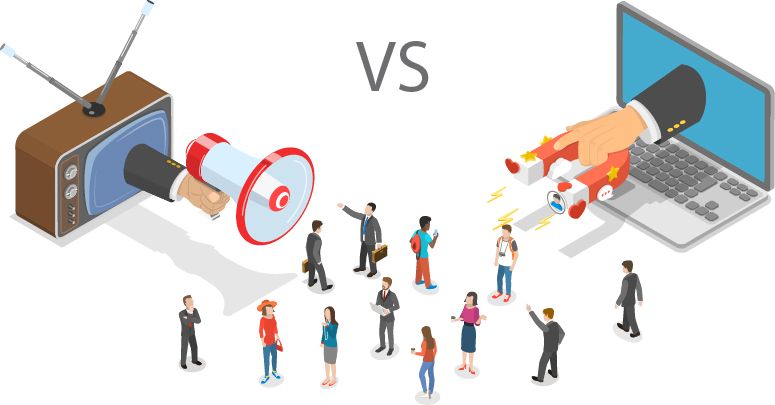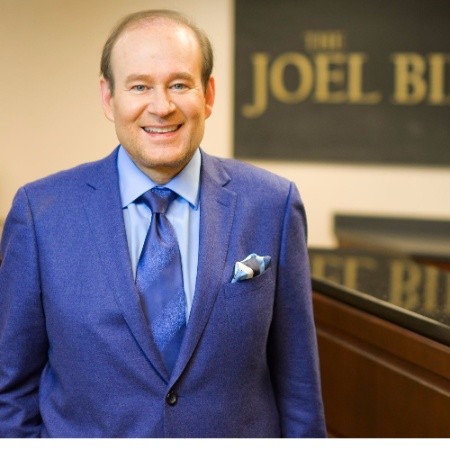
Lawyers know how to advertise. In major markets around the United States, television advertising for legal service is big business. It’s not uncommon to see top law firms spend hundreds of thousands of dollars each year to reach the public through traditional TV, as well as radio and digital ad spots.
Marketing is a whole different animal. But far too often in the legal sector the two — advertising and marketing — are considered one in the same. But let’s be clear: Making a TV ad or even advertising on the internet for cases is not marketing.
The two are not interchangeable. Let me explain why — and why distinguishing between the two may be critical to your business.
Advertising Versus Marketing
First, let’s define the two business strategies. Advertising is “the activity or profession of producing advertisements for commercial products or services.” Marketing is defined as “the action or business of promoting and selling products or services, including market research and advertising.” Hence the confusion. Marketing appears to “include” advertising.
But there are a few words in the definition of marketing that help distinguish the two: “promoting” and “market research.” Marketing is an action. Advertising, in essence, is a deliverable.
Both work in different ways to build your legal brand. But advertising is more of a transaction of your brand and marketing is a relationship with your brand. In advertising, you ask for something and get something in return. For example, call our law firm and get a free consultation about your case, now.
In marketing, each interaction represents your brand. And to do it right you have to know exactly what you stand for, because it affects every client “touch point.” These can range from current customer service to resolution of a case to keeping in touch with past clients for future referrals.
Casting a Wide Versus Narrow Net
At its most basic, advertising is a blunt hammer. Your law firm broadcasts one message at a time to a broad audience. The end goal is to create a simplified, often visually driven message in effort to reach and attract new clients who may need your legal services. This casts your net very wide. The idea is that the more people who see your TV, the larger the percentage of potential leads will come from that investment.
Marketing, on the other hand, is a scalpel. It is for fine-tuning your client relationships by leveraging your brand platform. It is not aimed at catching the eye of the general public. It’s a much more targeted effort. Think of legal marketing as a careful mix of strategies to service and tap your existing clientele.
The idea is if you give people more of what they want, they’ll come back with more business of their own. Repeat business. Or, even better, your loyal followers will refer your law firm to family or friends. This cycle creates a fresh flow of leads yet often doesn’t require anywhere near the level investment as a traditional advertising campaign.
Why Marketing is a Smart Return on Investment
Sadly, attorneys drastically overlook marketing. They are not accustomed to building marketing into the budget the way they do with advertising. And it’s a shame.
Not only is that a lost opportunity, but it’s also lost money. Why? Because effective marketing is one of the most cost-effective methods for growing business today. Marketing is often done in-house without the requirement of pricey third-party platforms like broadcast television — the airwaves.
Marketing is email communication, phone calls, social media campaigns and, frankly, the culture you create at your law firm. You would be surprised at how far these basic relationship-building efforts, at a fraction of the cost of advertising, can take your business.
But one of the biggest drivers of missed marketing opportunities are advertising agencies. Many are still leading lawyers down a very narrow path: TV advertising. Or, if they do suggest ideas for how to help law firms with marketing, these tactics vary so dramatically from agency to agency that it’s hard to know if what you’re paying for is going to pay off.
In fact, if you ask 10 different advertising agencies in the legal space to define the difference between marketing and advertising, you will get 10 different answers. I know, I asked. And I was amazed that each agency I asked said something different.
There seems to be no standard in legal marketing tactics, and that only adding confusion to the space. No wonder lawyers are perplexed and lost.
So Where do Law Firms go From Here?
First, look at your brand. What does it say? Does it convey trustworthiness? People do business faster with people they trust. And so it goes: The lawyers with the most credibility are entrusted with the most serious injury cases.
If you’re not sure what your brand is really saying about your law firm, look at it like Amazon’s Jeff Bezos: “Your brand is what other people say about you when you’re not in the room,” he famously said. If you want to thrive, create a strong brand that separates you from what every other law firm says — and start building a top layer of credibility above your call to action, or advertising.
Then, sit back and look carefully at all of your advertising. But make sure you’re evaluating it honestly — the way the public sees it. Once you understand what you’re really looking at then you can form an opinion or make a judgment about what’s working and what’s not.
Last, make sure you can separate the tactics of advertising from marketing your brand. Only then will you be able to move forward with a clear understanding of how consumers identify with you versus the call to action you take to get consumers to knock on the door.
In a nutshell, that’s marketing versus advertising. Knowing the difference is critical to your business.





























































